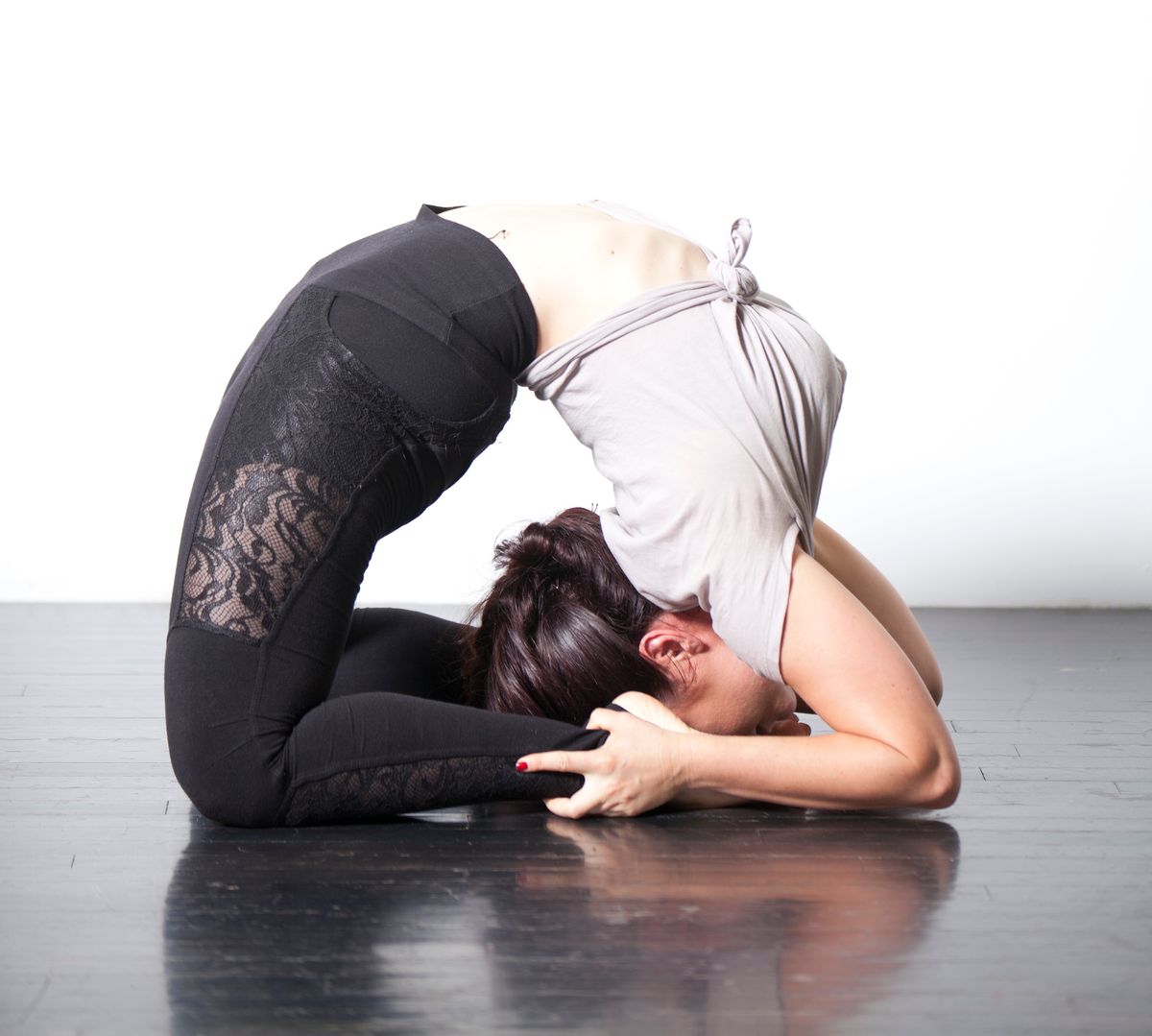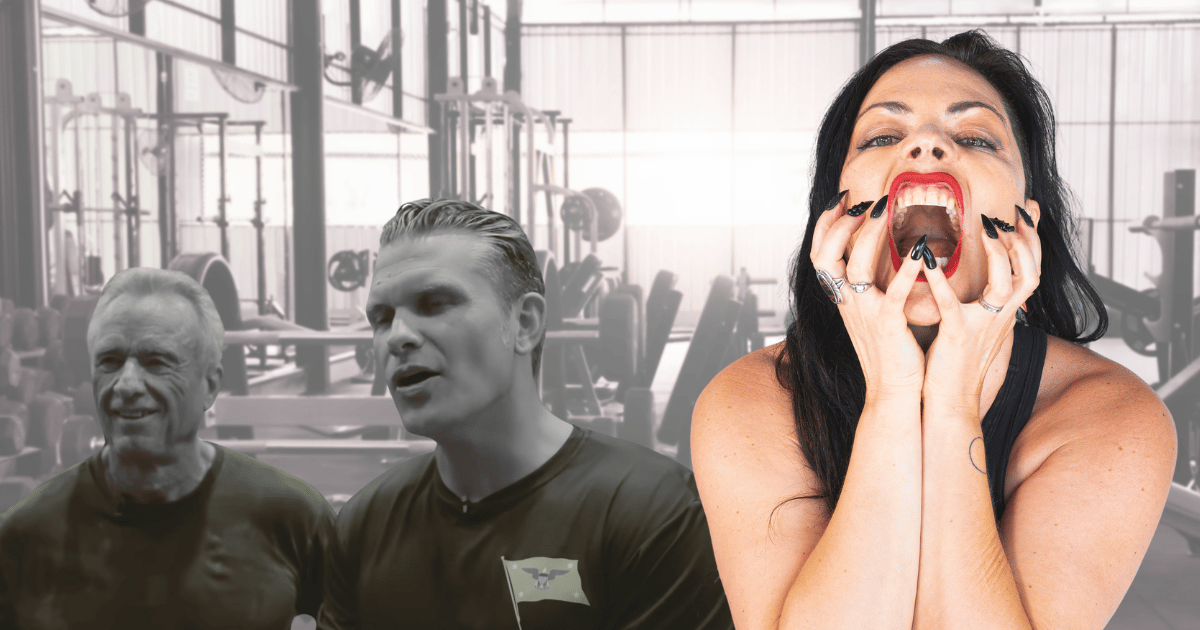Forwarded this in an email? Subscribe for all things bendy here:
There are so many things that I loathe about the current administration’s policies, many of which have much greater consequence for the world than the “Pete and Bobby Fitness Challenge.” However this little gambit falls neatly into my purview so I’m devoting this newsletter to challenging the challenge.
If you have the good fortune of having missed this tidbit, a couple of weeks ago our esteemed Secretary of Defense and accused rapist Pete Hegseth and Secretary of Health and Human Services and conspiracy nut Robert F Kennedy Jr released a video on the DoD YouTube page in which they joined a bevy of very muscular service people to do 50 pull-ups and 100 push-ups in under 5 minutes.
Issuing a challenge like this to the country is fitness gatekeeping at its finest. Push-ups and pull-ups are pretty useless indicators of one’s overall health and only accessible to people who are already very strong. Many active people would struggle with this number of reps, compromising both range and form (something that both men clearly do).
Fitness Culture Elevates a Few to Shame the Rest
This kind of sloppy, performative fitness is elevating the worst of our fitness culture to the highest offices of the land. Fitness at its worst is focused exclusively on aesthetics and competition, featuring coaches and influencers who glorify ripped, thin, bodies doing very difficult physical feats. This is presented as “aspirational,” inspiring the rest of us to emulate their lifestyles (and buy their program$).
The clear message is that if the rest of us weren’t lazy, undisciplined schlubs, we too would be up there banging out reps with people like Pete and Bobby. We are supposed to look at that video and feel ashamed. Then that shame is ostensibly going to drive us to get jacked.
The problem is that shame is a terrible tool when it comes to inspiring healthier choices, be it gym habits or diet or anything else.
Shame is a Terrible Training Tool
If shame worked, we would be a much healthier society because it is everywhere. Body shame oozes out of every crevasse of our media, from weight loss billboards to fitness influencers to the doctor’s office.
Everyone I know suffers from some level of body shame, and it is often that very shame that keeps people from going to the gym. If I’m already struggling with body shame why would I want to go someplace where my fitness level would be highlighted? Why would I want to subject myself to the judgement of people like Pete and Bobby who think I am a lesser human simply because I can do a bunch of silly exercises?
When we mange to the gym, shame bullies us into crappy training practices. If I feel shitty because I can’t do a pull-up I’m going to muscle my way through some approximation of a pull-up just to prove I can. At best I’m doing a bad workout, but I could end up with a shoulder impingement. Shame will drive us to try things we aren’t ready to do rather than be present with what we actually can do. Only when we pay attention to our bodies as they are right now can we create a workout routine that strengthens, balances, and nourishes us.
What Changes Could Actually Encourage People to Work Out?
The Pete and Bobby Fitness Challenge is nothing new. It isn’t offering anyone new tools to eat healthier and get more exercise. If they were tackling food deserts and supermarket redlining, or addressing the fact that many people are too tired trying to make ends meet to work out, then I would be impressed.
In conclusion, let me offer you an alternative idea of what fitness culture could look like that would actually encourage more people to find joy, health, and pain reduction through working out:
Exercise is a relationship between you and your body. All movement is an expression of that relationship
Weight loss and muscle size are a potential side effect of working out, not the primary goal. The primary goal of working out is to feel better in your body and improve your quality of life.
All are welcome in fitness spaces. Folks who are newer to that particular space are celebrated and supported by the veterans who understand that they have a responsibility to the community around them.
The health of individuals within a society is not the sole burden of the individual. Being healthy requires a society that supports healthy decisions, mental health, rest, support, and access to resources.
Health will look different for different people depending on age, genetics, disability, history, and simply what that person wants for themselves. There is no one way to be healthy.
Of course, none of these ideas are going to help bros like Pete and Bobby feel smug, which was the ultimate goal of this video. So in the meantime I challenge my fellow coaches, trainers, and fitness addicts to think about the content and culture that we create and ask ourselves: are we elevating our communities, or only ourselves?
Have thoughts? Suggestions for your own tenets of an encouraging fitness culture? Think I’m full of shit? As long as you are respectful and thoughtful in your response, I’d love to hear from you! Comment below or reply, though trolls and meanies will be deleted.
Happy Bendings,
Kristina


